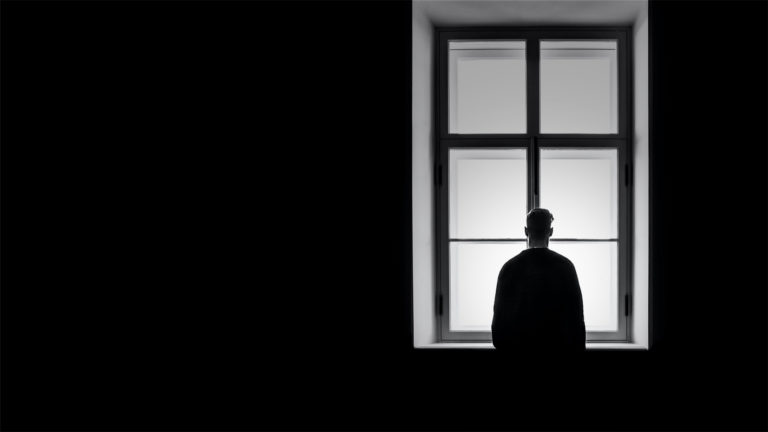What is home? More than just where the heart is, home conjures up ideas of security, stability, safety—a place where you and yours are free to be and become. Now, more than ever, the conceptual nature of home is a paradox. As the fixed boundaries of home are increasingly tested, the feelings of home (stability, creativity, and belonging) are harder to achieve than ever—yet perhaps are more important than ever.
On a macro level, the predominant guidance for coping with the COVID-19 virus is to stay home and limit outside interaction. In many ways, this is the first time in modern history that we are united around a common mission on such an enormous, global scale.
But in our microcosms, the limits and barriers of the home feel more constraining than ever. So how do we maintain feelings of safety, security, and belonging in this paradoxical situation? By exploring these paradoxes, we’ve revealed opportunities for brands to help reinforce these feelings, connect to their audience, and echo consumer behavior within the new boundaries created by the pandemic.
Paradox #1 Stability
As life continues to be unstable and uncertain, home is a place where we deeply want to feel safe and stable. Our instinct in the face of chaos and the unknown is to establish a sense of safety and control, especially within our most immediate surroundings. Staying home can be both freeing (knowing that we are protecting ourselves and others) but also stifling.
Brands are speaking to both sides of this paradox—empowering consumers to take control of their circumstances, creating a sense of safety in the home. They’re also acknowledging and recognizing the need for an escape from the limitations of home, and that staying within its fixed confines is often more challenging the longer we do it.

Photo by PxHere
While the need for safety and security isn’t anything new, it is amplified right now. People are working that much harder to demand security in the brands they turn to in this time; from the food we eat, the products we clean with, what comes into our home, we are craving verifiable and definite security.
On the other side of the coin, people are losing their patience as they stare down seemingly endless time stuck at home as more companies announce extended work-from-home policies and news of impending peaks and waves persists.
Interestingly, vacation-rental companies, flat-lined by the pause in travel, are rising to the occasion. Some, like Airbnb, are seeing a significant increase in 1-6 month rentals, with some hosts fully transitioning to long-term bookings. Conversely, the startup Globe is renting out space by the hour for those desperate for a short change in scenery. They’ve seen a spike in demand in the past few months, with more than 100,000 people now on the waitlist to become guests.
This all suggests that brands have a major opportunity to send more powerful messages to their consumers, offering concrete ways to address both the evergreen need for stability—and the fact that being home all the time simply isn’t sustainable.
Paradox #2 Creativity
Many of us also have more free time on our hands than ever before. Commutes are erased while working from home, and as activities and events are put on pause, our day-to-day lives are opening up. Left with more time than ever to maximize the home to achieve, learn, and grow, we’re also forced to contend with our societal pressure for productivity even in the face of a debilitating global crisis.

Photo by Annie Spratt
We’re so preconditioned to see “free time” as wasted or unproductive time, that we need help finding ways to savor the slowness and find joy in small quiet moments. We’ve looked at the rise of baking as a prime example of this, and pandemic projects small and large aren’t stopping anytime soon.
With this comes an opportunity for brands to serve an unfamiliar role in our fast-paced modern times—helping people to find ways to ease some of the growing pains of major routine shifts, to take time to reassess priorities and also as a time to try something new.
Paradox #3 Belonging
The rallying cry of COVID-19 has been that we’re all in this together. While this is true at some level, the impact of the pandemic strikes unequally, highlighting structural failings, racism, access, and infrastructure. The message of belonging, in that we’re all experiencing the pandemic, is true at some level—but is simplistic at best.

Photo by Alex Motoc
The message of us all being in this together is generic and not compelling, especially after the initial weeks of COVID-washing led many brands to echo the same hollow message without backing it up with anything actionable.
Virtual and digital connection, for right now, remains a major way for us to connect, but brands outside of this category are also speaking to empathy and belonging. Whether it’s Kraft Heinz turning over their social channels to small businesses, or Verizon kicking off a major campaign to amplify public health messaging—consumers are welcoming brands to say something real and genuine, and to speak to how we can get through this time.
Equally, as new challenges arise, brands must recognize when it’s not enough to just make their voice heard—and when they’re better served by amplifying the voices of other, complementary partners. One example is new-gen makeup and beauty brand, Glossier, who in response to the recent protests, not only donated $500K across organizations focused on combating racial injustice but allocated an additional $500K in the form of grants to Black-owned beauty businesses.

What does this all mean?
While we may begin to leave our homes as countries reopen, the home still will remain an integral part of all of our lives. Brands have the opportunity to be a partner in reinstating the fundamental feelings of home that this pandemic has invaded, and to take a forward-looking approach on how to use this moment to enact future change.
Written by Shira Beder and Cassidy Welter


